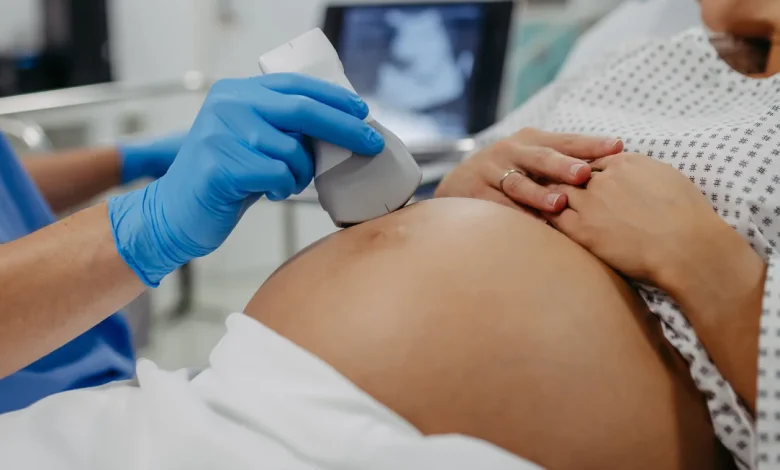Prenatal marijuana use linked to serious risks for mother during pregnancy, study finds

CNN — Marijuana is being used during and during pregnancy by an increasing number of women to reduce pain, nausea, tension, and aid with sleep. Actually, over the past 20 years, use has more than doubled, according to study.
Premature birth, lower birthweight, and a higher likelihood of admission to neonatal intensive care units are just a few of the negative effects of marijuana usage during pregnancy that have been associated with research.
What about the mother’s possible risk if she consumes cannabis prior to or during her first trimester of pregnancy? Furthermore concerning is the news from a recent study. Preeclampsia, a condition characterised by elevated blood pressure, and prenatal hypertension—two major, potentially fatal consequences for mothers—are more likely to occur.
“Those who used cannabis during their early pregnancy compared to those who did not had an 8% increased risk of preeclampsia and a 17% increased risk of gestational hypertension,” stated Kelly Young-Wolff, the lead study author and research scientist at Kaiser Permanente Division of Research in Pleasanton, California.
According to Young-Wolff, there was a “19% greater risk of placental abruption” for those who smoked marijuana in the early stages of pregnancy.
The placenta, an organ that gives the foetus oxygen and nourishment, abruptly separates from the side of the uterus in placental abruption, putting both the mother’s and the developing child’s health at risk. One of the main causes of death for both expecting moms and infants is a detached placenta.
According to research, pregnant women are inundated with false information about the safety of cannabis use during pregnancy from peers, cannabis retailers, and social media, according to Young-Wolff. “Our study adds to the growing body of evidence indicating that cannabis use during pregnancy is not safe by providing timely and important data.”
Researchers discovered that women who smoked marijuana before or during the early stages of pregnancy had a 9% higher risk of gaining too much weight throughout their pregnancies and a 5% higher risk of not gaining enough weight, as compared to the weight gain that is thought to be ideal for a successful pregnancy.
According to Brianna Moore, an assistant professor at the Colorado School of Public Health in Aurora, Colorado, “to my knowledge, this is the largest study to date looking at cannabis use in pregnancy and adverse health outcomes in the mother.” Moore made this statement in an email. Moore, a researcher on cannabis usage during pregnancy, was not associated with the recent study.
According to Moore, “it is never too late to reduce or limit your cannabis use during pregnancy to minimise the potential health effects.” “Speak with your medical professional.”
Serious, even life-threatening complications
When a woman’s blood pressure increases over 140/90 during the first 20 weeks of her pregnancy and then usually returns to normal after giving birth, it is known as gestational hypertension. According to the Children’s Hospital of Philadelphia, persistently high blood pressure during pregnancy can “hinder blood flow in many different organ systems in the expectant mother including the liver, kidneys, brain, uterus, and placenta.”
Preeclampsia, a more severe form of high blood pressure in which elevated blood levels of liver enzymes and protein in the urine are indicators of potential kidney or liver damage in the mother, can develop from prenatal hypertension in certain women. Breathlessness may result from a build-up of fluid in the lungs and a drop in blood platelet levels, as per the Mayo Clinic.
According to the Cleveland Clinic, in severe situations, such high blood pressure can cause blood clots, seizures, strokes, transient renal failure, and problems with the liver.
Preeclampsia can also result in premature delivery and admission to the neonatal intensive care unit, separating the mother and child at birth and potentially interfering with the early ability to form a skin-to-skin bond, according to an email from Dr. Deborah Ansley, an OB/Gyn and medical director of Kaiser Early Start, a prenatal health programme in Northern California. She didn’t work on the study.
How can marijuana have such detrimental effects on a developing foetus? Tetrahydrocannabinol, or THC, is one of the cannabinoids that experts think may attach to placental receptors and interfere with oestrogen signalling, so altering placental development and function.
The component of the cannabis plant that causes euphoria is called THC, but the plant also contains more than 500 additional chemicals and over 100 other cannabinoids.
Dangers highest with daily use
The 4.6 million patients who receive treatment from Kaiser Permanente Northern California were the source of health data for the study, which was published on Monday in the journal JAMA Internal Medicine. When they started prenatal treatment at roughly 8 to 10 weeks gestation, more than 250,000 expectant mothers were questioned about their marijuana use. Numerous individuals also had urine analyses performed, which might identify any marijuana usage throughout the previous 30 days.
Over 20,000 people were found to be cannabis users, including almost 11,000 pregnant moms who tested positive on a urinalysis while not admitting to using the drug.
According to Young-Wolff, “the unique aspect of our study was that we were able to perform a sensitivity analysis that restricted the sample to pregnant patients who did not screen positive for any other substances.”
“Notably, the outcomes of this analysis conformed to the same overall pattern as the primary findings, suggesting that the use of other substances during pregnancy was not a contributing factor to our findings,” the spokesperson stated.
The more often one used something, the higher the chance of developing gestational hypertension; daily users were most at risk.
“Previous research has demonstrated an increasing frequency of prenatal cannabis use over time, with a higher percentage of prenatal cannabis users reporting daily use in recent years,” Young-Wolff stated.
That’s particularly concerning because, according to experts, marijuana is far more potent now than it was a few years ago.
The study discovered that using at least once a month or more was associated with an increased risk of placental abruption. The study also found that there was a higher chance of eclampsia, a more severe form of preeclampsia that can cause seizures and even death, but the risk was not statistically significant.
One unexpected discovery was a lower risk of gestational diabetes. According to Moore, research on marijuana’s effects on insulin resistance and metabolic syndrome—a group of conditions that can result in diabetes and other chronic diseases—in non-pregnant individuals has been conflicting.
Moore stated, “More research is required to determine whether and how cannabis use during pregnancy may affect risk for gestational diabetes.”
Discuss marijuana use with physicians
The authors note that the study had limitations. First of all, they were unable to ascertain if marijuana use persisted throughout the pregnancy.
More research is required, but Moore surmised that “my suspicion is that the health effects would be stronger if the pregnant person continued to use cannabis after the first trimester.”
According to Young-Wolff, urine testing could only detect THC and not other cannabinoids, and the self-report was unable to distinguish between consumption from edibles and smoking. Furthermore, the results might not apply to other American populations because all of the expecting moms were based in northern California, a state that legalised adult use sales of cannabis in 2018 in addition to therapeutic use in 1996.
Because “the participants in this study were older, had higher incomes, and almost all had private health insurance,” Moore continued, the findings might not apply to the broader community.
Pregnant women should feel free to share any cannabis use with their healthcare provider without fear of punishment, experts say, as the list of marijuana’s documented health hazards grows.
“We encourage pregnant individuals to discuss symptoms with their doctor and use interventions recommended by clinical practice guidelines if they are considering using cannabis during pregnancy as a self-medication for pregnancy-related symptoms,” Young-Wolff stated. “We advise pregnant women to try using cannabis less frequently if they are unwilling to give it up.”




